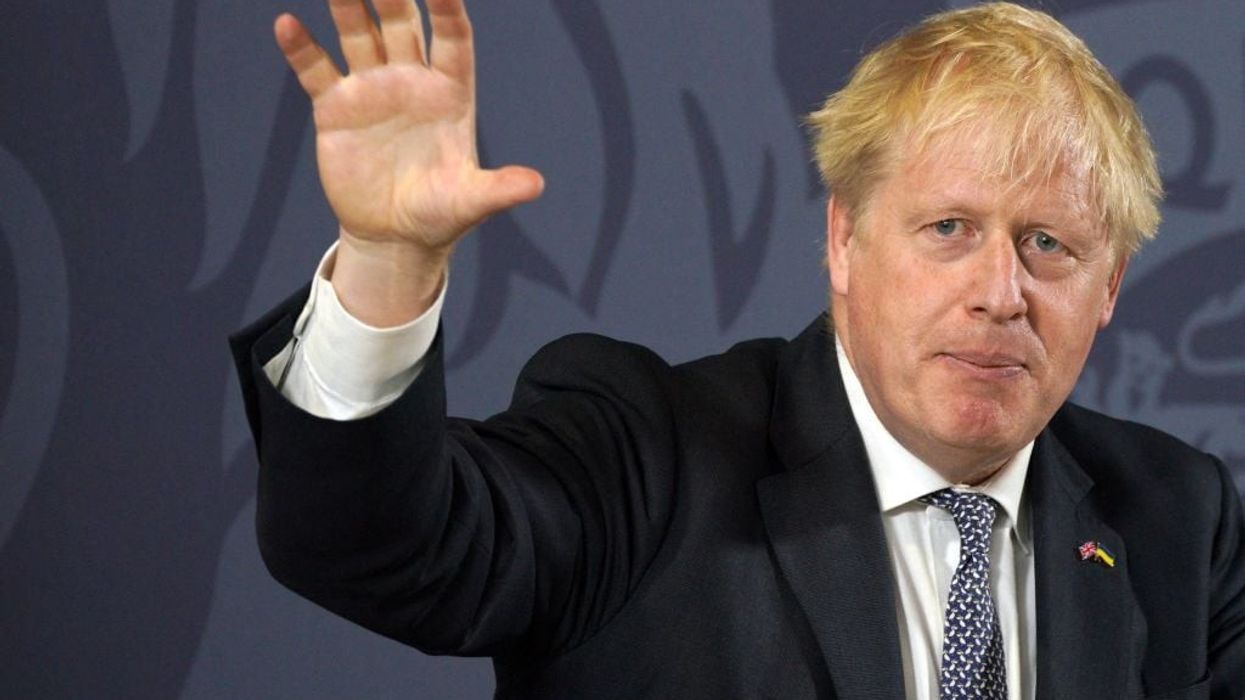BRITISH prime minister Boris Johnson has pledged that the government will not simply ‘roll over and surrender' to union demands in the face of threats to bring the railways to a standstill, according to a report.
He added that the government will help the industry weather the storm if a deal can’t be struck, the MailOnline reported.
The Transport Salaried Staffs’ Association (TSSA) union, whose members manage control rooms, signalling and power for train operators and Network Rail, has launched its first strike ballot, while the Associated Society of Locomotive Engineers and Firemen (Aslef) union has called the first regional walkouts by drivers. Their strikes will coincide with those by the rail, maritime and transport workers union (RMT).
Aslef drivers on Hull Trains will strike on June 26 and those on Greater Anglia on June 23. Drivers on the Croydon Tramlink, in south London, will also walk out on June 28, 29 and July 13 and 14.
These dates coincide with the RMT’s strikes, which will see 40,000 workers for Network Rail and 13 train firms covering most of the country walk out on June 21, 23 and 25.
It means almost no trains are likely to run on these routes, the report added.
The members of the TSSA union at train operator Avanti West Coast could also walk out on one of the most important rail corridors in the UK from mid-July.
Croydon Tram drivers will stage two 48-hour strikes on 28-29 June and 13-14 July, and Hull Trains drivers will strike on 26 June.
The railway is expecting to run about 20 per cent of normal services between 7 am and 7 pm, preserving some trains on mainlines and urban services. A tube workers’ strike will also halt the London Underground on 21 June.
"You don’t want to go back to the 1970s where you had inflationary pay rises which led to more inflation. You have to keep pay rises sensible to keep inflation down," Johnson was quoted as saying in a Cabinet meeting.
Ministers and MPs also critised the unions. Transport secretary Grant Shapps tweeted: "The theatre, live music and hospitality industries are some of those which are going to suffer from the planned rail strikes. I again encourage unions to stop these strikes and engage in talks with the rail industry.’
Business Secretary Kwasi Kwarteng, posting a link to an article in which Labour’s Lisa Nandy apparently backed the action, tweeted: 'RMT’s strike action is completely self-defeating.’ He said ‘Labour-backed rail chaos’ would lead to fewer people using trains, drops in revenue, lower pay and job losses."
Commons leader Mark Spencer said the RMT should ‘reflect long and hard’ before making travellers’ lives a misery.
According to MailOnline, the potential damage that the RMT strikes alone will inflict on the industry is £150 million.
Negotiators said RMT workers could get an even bigger increase if the union agreed to discuss modernising work practices, the report added. The RMT’s resistance to modernising work practices has been branded ‘absurd’.
According to reports, managers and train drivers could join the strikes across the railway, potentially setting up a complete national shutdown by the time of the Commonwealth Games in July.
Talks were held on Thursday (9) between Network Rail and the RMT but with no breakthrough in the dispute over pay and workplace reform.
The shadow levelling up secretary, Lisa Nandy, gave qualified backing to rail workers but said Labour wanted to avoid strikes.
Nandy said: “We want to avoid the strikes and we’re on the public’s side on this. We’re also on the rail workers’ side. They’re dealing with the same pressures that everyone else is – the cost of food, the cost of soaring inflation rates, taxes going up, and they’re really struggling to make ends meet."





